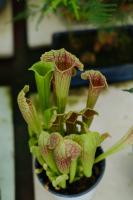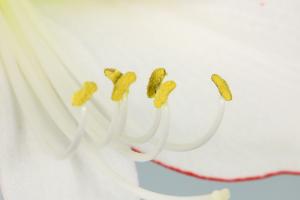Introduction
Plant cells are unique in their structure and functions. One of the most significant organelles present in a plant cell is vacuole. Vacuoles are essential components of plant cells and play various roles that are necessary for the survival of the plant. This article aims to explore the function of vacuoles in a plant cell and their significance in plant biology.
What Is a Vacuole?
A vacuole is a membrane-bound organelle that is present in the cytoplasm of a plant cell. It is a large, fluid-filled sac that is essential for the survival of the plant. The vacuole is surrounded by a single membrane called the tonoplast, which is responsible for maintaining the pH and ionic balance of the fluid inside the vacuole.
Function of Vacuole
The vacuole in a plant cell has several essential functions that are necessary for its survival. Some of them are as follows:
Storage
The vacuole in a plant cell is primarily responsible for storing water, ions, waste products, and nutrients. These substances are utilized by the plant cell for its growth and development. The vacuole occupies a significant portion of the cell's volume and can expand or contract depending upon the amount of substance it contains. For instance, when a plant cell absorbs water, the vacuole expands, which makes the cell turgid and keeps the plant upright.
Waste Management
Another critical function of the vacuole in a plant cell is waste management. The vacuole stores and degrades metabolic waste products and other harmful substances that can be toxic to the plant cell. This way, it helps to keep the plant cell healthy and prevent any damage caused due to the accumulation of toxic substances within the cell.
Maintaining Turgor Pressure
The vacuole also plays a crucial role in maintaining turgor pressure in plant cells. Turgor pressure is the pressure exerted by the cell contents against the cell wall. The vacuole stores water and ions, which creates a pressure that pushes against the cell walls, maintaining the cell's shape and structure. This way, the vacuole plays a vital role in keeping the plant upright and helps it to survive in various environmental conditions.
Conclusion
In conclusion, vacuoles are critical organelles that are present in plant cells. They perform several functions that are necessary for the survival of the plant. Vacuoles store water, ions, waste products, and nutrients, maintain turgor pressure, and help in waste management. Therefore, understanding the functions of vacuoles is crucial for the study of plant biology and the growth and development of plants.

 how many times do yo...
how many times do yo... how many planted tre...
how many planted tre... how many pine trees ...
how many pine trees ... how many pecan trees...
how many pecan trees... how many plants comp...
how many plants comp... how many plants can ...
how many plants can ... how many plants and ...
how many plants and ... how many pepper plan...
how many pepper plan...































